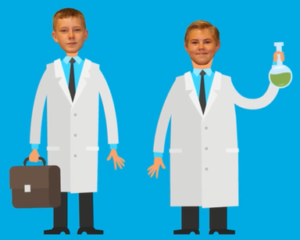2015 Blackie, Alberta, Canada

The 2015 Caring For Our Watersheds 4th place contest winners were Brayden Brausse and Nicholas Locken from Blackie School. These students were concerned about micro beads in the watershed, and the impact these small pieces of plastic have on plants, animals and water quality.
To bring awareness to this issue, the students produced a video about the harmful effects of micro beads and the use of alternative products that do not cause harm to the watershed.
Mirco beads come in 2 forms—polyethylene and polypropylene, both of which are used in household products such as exfoliating face washes and toothpaste. Micro beads are no bigger  than a grain of sand can pass through storm water and waste water treatment systems (unfiltered) into the watershed. This plastic can then be ingested by fish and other sea-life and move up the food chain into larger creatures.
than a grain of sand can pass through storm water and waste water treatment systems (unfiltered) into the watershed. This plastic can then be ingested by fish and other sea-life and move up the food chain into larger creatures.
Alternatives to products containing micro beads are plentiful and widely available. They include cleansers containing walnut shells, apricot seeds or oatmeal. Through their educational video, these students were able to provide information about the harmful effects of micro beads on the watershed, and inform people on available alternatives.
